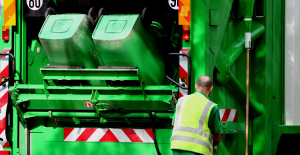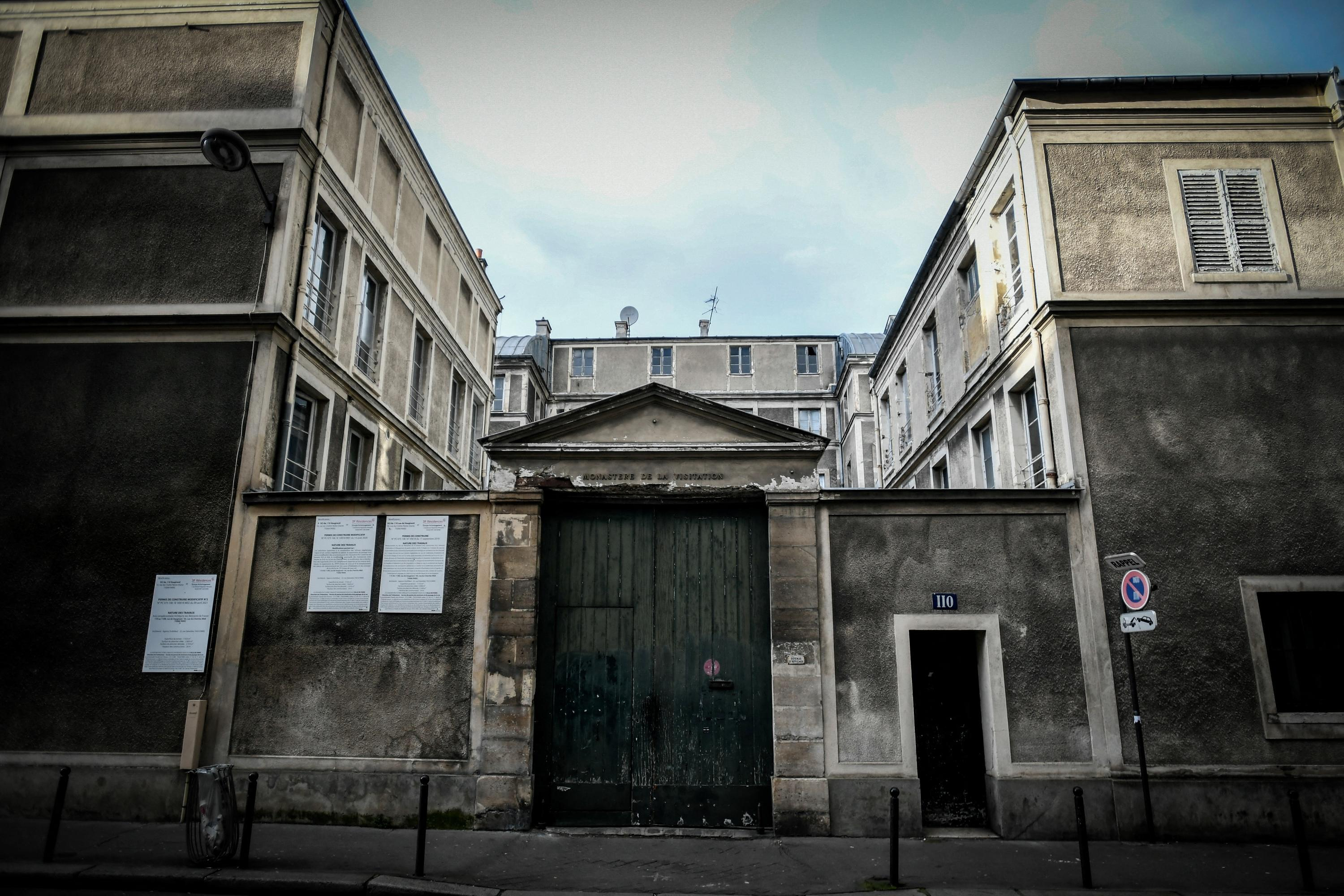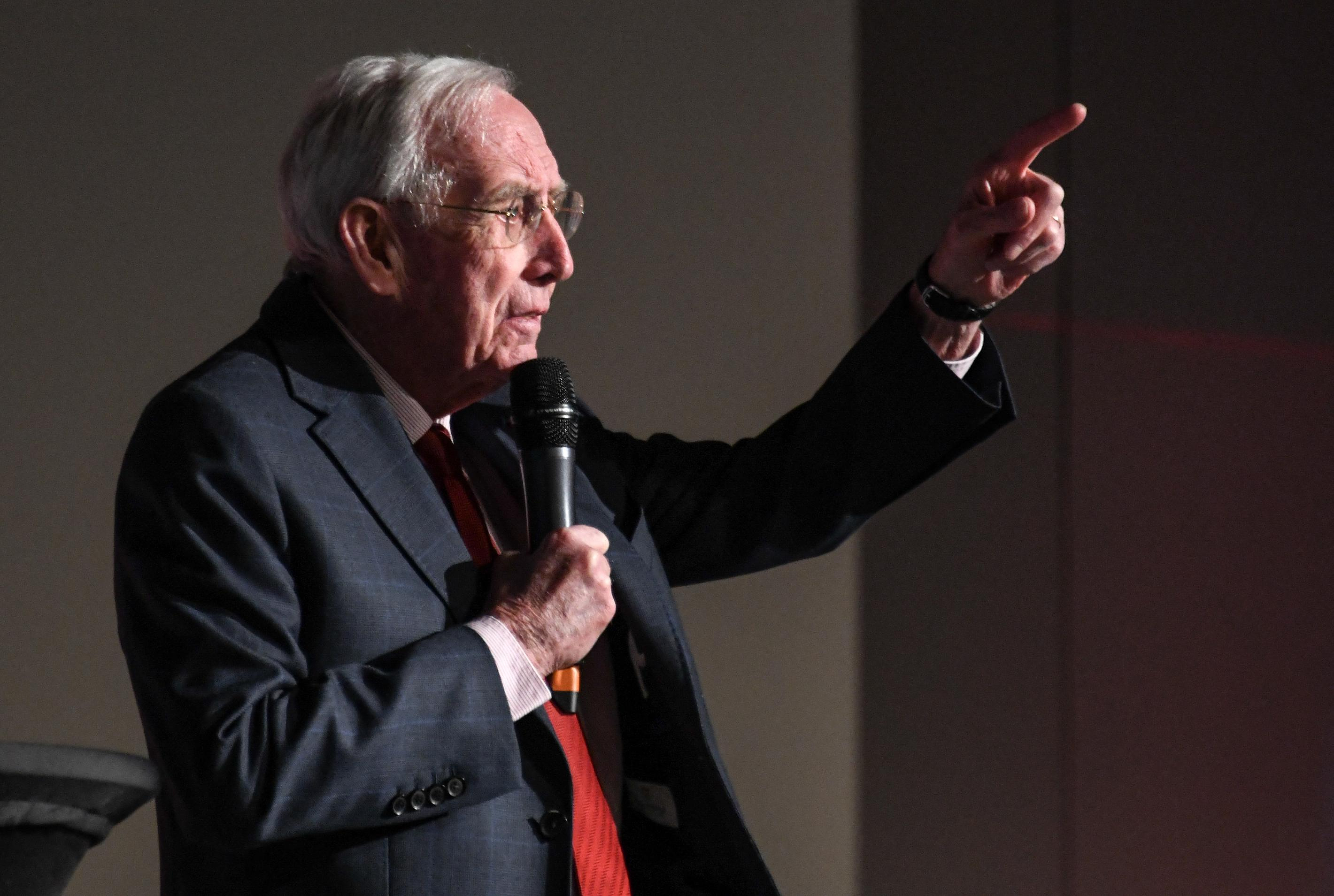The place is both immense and decrepit, in the heart of Paris: the monastery of the Visitation, whose buildings must be destroyed to install a center of solidarity there, pits those who want to make it a “place of charity” against those who denounce a “waste” of heritage.
Nestled between the very chic streets of Cherche-Midi and Vaugirard, the Clermont-Tonnerre hotel, built in the 18th century around 4,000 m2 of gardens, has been vegetating since the Visitandine sisters left the monastery in 2012. “They could have selling it very expensively to a developer, they preferred to give it to the diocese of Paris on the condition of not reselling it and making it a place of charity,” explains Jean Chausse, the treasurer of the diocese.
The Church plans to install a shared accommodation on the site for 90 people. This involves renovating the old Clermont-Tonnerre hotel to house homeless people and very vulnerable women. But also to build a second building, adapted for people with disabilities on the Cherche-Midi side, as well as a seven-story investment building on the Vaugirard side, and two other buildings.
The project, for which a building permit was granted by the city of Paris in 2019, is valued at 50 million euros. It will lead to the uprooting of several trees and the destruction of certain annexed buildings: a hutch, small oratories which are very degraded, and an old brick “cow house” built partly on an old chapel, and today redeveloped into functional offices.
What makes heritage defenders jump: “It’s a major opportunity that will disappear,” believes Julien Lacaze of the Sites and Monuments association, who deplores the fact that none of the buildings on the site are classified as historic monuments. Defending “an exciting heritage” mentioned by Emile Zola in L’Œuvre, he is concerned about the “great architectural brutality” of the future building and defends “one of the last opportunities to create a public garden in Paris”.
Seven associations (including Sites and Monuments) therefore requested at the beginning of December the placement under classification proceedings and the expropriation of the garden and the urban farm. “Ideally we would like to make it an educational farm with a cow, a vegetable garden. We remain faithful to the spirit of the sisters who were ecological before their time,” assures Mr. Lacaze. The money from the expropriation would allow the diocese “to carry out the project elsewhere”.
“It is a little shocking that we say the poor are good, but not in the heart of the city,” retorts Mr. Chausse, annoyed by the opponents' arguments. The urban farm tradition? “It’s far-fetched, there haven’t been any animals in the park for 70 years.” The garden? Currently closed to the public, it will be partly “open during the day, with a play area”, will retain its 4,000 m2, while the soil saturated with lead will be decontaminated and several trees replanted.
The architectural project itself “includes a heritage component”, he insists, with a complete renovation of the private mansion, chapel, paving and cellars included. As for the investment property, it is a matter of “sound management” by producing 600,000 euros gross in rent per year: “We do not know what the financial situation of the Church will be in 30 years,” sighs the bursar of the diocese.
The affair has been going on for years. The elected EELV at the town hall of the 6th arrondissement Antoinette Kis denounced in 2022 “a heritage and ecological failure”. Gérard Depardieu, owner of the neighboring mansion, once supported the rebellion. The Council of State itself ruled in 2021. So far, the opponents have always been rejected, so much so that the diocese hopes to launch the work at the end of 2024.
The associations, however, do not give up. Having obtained a visit from the Drac (Regional Directorate of Cultural Affairs) at the end of December, they are now calling on the Minister of Culture Rachida Dati. “It is a test file, which will show her concern and her courage in the heritage field (...) knowing that she wants to be mayor of Paris,” assures Mr. Lacaze.

 Poland, big winner of European enlargement
Poland, big winner of European enlargement In Israel, step-by-step negotiations for a ceasefire in the Gaza Strip
In Israel, step-by-step negotiations for a ceasefire in the Gaza Strip BBVA ADRs fall almost 2% on Wall Street
BBVA ADRs fall almost 2% on Wall Street Ukraine has lost 10 million inhabitants since 2001... and could lose as many by 2050
Ukraine has lost 10 million inhabitants since 2001... and could lose as many by 2050 Sánchez cancels his agenda and considers resigning: "I need to stop and reflect"
Sánchez cancels his agenda and considers resigning: "I need to stop and reflect" The Federal Committee of the PSOE interrupts the event to take to the streets with the militants
The Federal Committee of the PSOE interrupts the event to take to the streets with the militants Repsol: "We want to lead generative AI to guarantee its benefits and avoid risks"
Repsol: "We want to lead generative AI to guarantee its benefits and avoid risks" Osteoarthritis: an innovation to improve its management
Osteoarthritis: an innovation to improve its management Ukraine gets a spokesperson generated by artificial intelligence
Ukraine gets a spokesperson generated by artificial intelligence The French will take advantage of the May bridges to explore France
The French will take advantage of the May bridges to explore France Organic flour contaminated by a recalled toxic plant
Organic flour contaminated by a recalled toxic plant 2024 Olympics: Parisian garbage collectors have filed a strike notice
2024 Olympics: Parisian garbage collectors have filed a strike notice Actor Laurent Lafitte leaves the Comédie-Française
Actor Laurent Lafitte leaves the Comédie-Française Death of Paul Auster: Actes Sud says he is “lucky” to have been his publisher in France
Death of Paul Auster: Actes Sud says he is “lucky” to have been his publisher in France Lang Lang, the most French of Chinese pianists
Lang Lang, the most French of Chinese pianists Author of the “New York Trilogy”, American novelist Paul Auster has died at the age of 77
Author of the “New York Trilogy”, American novelist Paul Auster has died at the age of 77 Omoda 7, another Chinese car that could be manufactured in Spain
Omoda 7, another Chinese car that could be manufactured in Spain BYD chooses CA Auto Bank as financial partner in Spain
BYD chooses CA Auto Bank as financial partner in Spain Tesla and Baidu sign key agreement to boost development of autonomous driving
Tesla and Baidu sign key agreement to boost development of autonomous driving Skoda Kodiaq 2024: a 'beast' plug-in hybrid SUV
Skoda Kodiaq 2024: a 'beast' plug-in hybrid SUV The home mortgage firm rises 3.8% in February and the average interest moderates to 3.33%
The home mortgage firm rises 3.8% in February and the average interest moderates to 3.33% This is how housing prices have changed in Spain in the last decade
This is how housing prices have changed in Spain in the last decade The home mortgage firm drops 10% in January and interest soars to 3.46%
The home mortgage firm drops 10% in January and interest soars to 3.46% The jewel of the Rocío de Nagüeles urbanization: a dream villa in Marbella
The jewel of the Rocío de Nagüeles urbanization: a dream villa in Marbella Europeans: a senior official on the National Rally list
Europeans: a senior official on the National Rally list Blockade of Sciences Po: the right denounces a “drift”, the government charges the rebels
Blockade of Sciences Po: the right denounces a “drift”, the government charges the rebels Even on a mission for NATO, the Charles-de-Gaulle remains under French control, Lecornu responds to Mélenchon
Even on a mission for NATO, the Charles-de-Gaulle remains under French control, Lecornu responds to Mélenchon “Deadly Europe”, “economic decline”, immigration… What to remember from Emmanuel Macron’s speech at the Sorbonne
“Deadly Europe”, “economic decline”, immigration… What to remember from Emmanuel Macron’s speech at the Sorbonne These French cities that will boycott the World Cup in Qatar
These French cities that will boycott the World Cup in Qatar Football: a goal from Georges Mikautadze broadcast...in Times Square
Football: a goal from Georges Mikautadze broadcast...in Times Square Dortmund-PSG: in video, Borussia’s opening score
Dortmund-PSG: in video, Borussia’s opening score Tennis: Sabalenka stops Andreeva and enters the last four in Madrid
Tennis: Sabalenka stops Andreeva and enters the last four in Madrid “It doesn’t look very positive”, big concern around Lucas Hernandez injured in the knee
“It doesn’t look very positive”, big concern around Lucas Hernandez injured in the knee


















